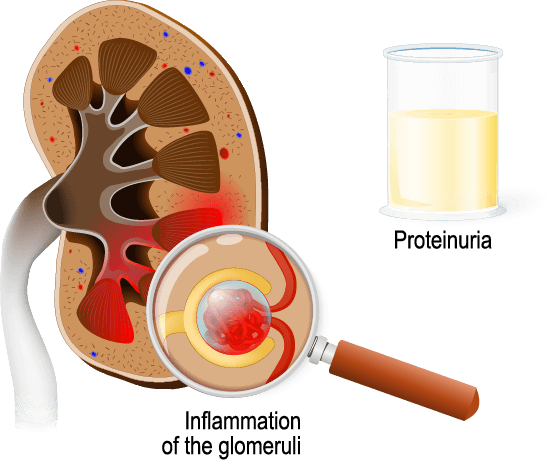
Primary membranous nephropathy (Primary MN) is a disease that causes damage to the parts of the kidney that filter the blood, called the glomeruli. Damage to these filters can lead to high levels of protein in the urine, as well as reduced kidney function. Protein in the urine above a certain level (3.5 g/day) is referred to as nephrotic syndrome, and Primary MN is one of the most common causes of nephrotic syndrome in adults. If untreated, about half of patients with nephrotic syndrome will eventually develop kidney failure, also known as end stage renal disease.
Primary MN is an autoimmune disease, which means the immune system attacks the body’s own tissues or cells. Usually the immune system produces antibodies that target foreign organisms like viruses or bacteria that could cause harm. In Primary MN, the immune system incorrectly makes antibodies against cells in the kidney, which leads to inflammation and damage.
Some people with Primary MN may get better on their own. The drugs used to treat Primary MN try to reduce the immune attack on the kidneys by blocking inflammation and reducing the immune system’s function. These drugs can have serious side effects and often do not cure the disease. There is a need for treatment options that are safer and more effective for Primary MN.
In this clinical trial, researchers are testing whether a combination of two different drugs, belimumab (Benlysta®) and rituximab (Rituxan®), is safe and if this combination is more effective at blocking the immune attack on the kidney compared to rituximab alone.

